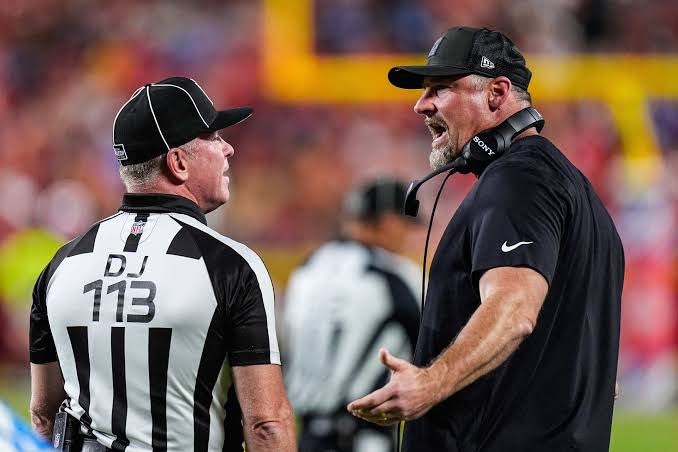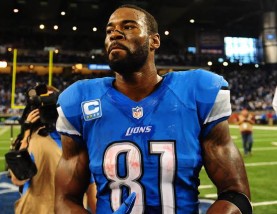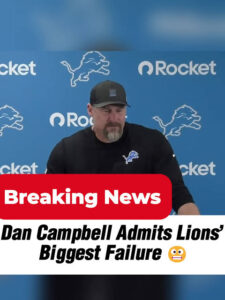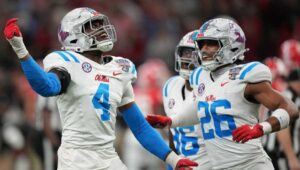
In the wake of the Detroit Lions’ loss to the Kansas City Chiefs, a vocal segment of the fanbase and sports media has
declared a full-blown “NFL Scandal.”
The primary flashpoint is the controversial overturned touchdown on a trick play, followed by reports that the NFL’s Replay Assist in New York intervened to create a penalty—an accusation some have called the “biggest NFL scandal in 25 years.”
The criticism is now turning on the league’s primary media partners—ESPN, FOX, and CBS—with accusations that they are “cowards” for failing to give this story the wall-to-wall coverage it deserves.
The Heart of the Outrage
The outrage stems from two key incidents involving Lions Coach Dan Campbell:
The Chiefs Game Call: An illegal motion call negated a Lions touchdown, severely impacting the momentum of the game. The subsequent narrative, amplified by some in sports radio, suggests that the call originated from the New York officiating office to benefit the Chiefs. For many, this is seen as evidence of games being rigged or manipulated for the league’s most marketable team.
The “Bogus” ESPN Report: Earlier this season, Campbell publicly and heatedly refuted an ESPN report claiming the Lions had complained to the league about opponents using low blocks on defensive end Aidan Hutchinson, calling the report “bogus” and “bull.”
Why the Networks Appear to Be “Ignoring” It
While the “scandal” is a hot topic among fans, the major networks’ tempered approach isn’t an act of cowardice—it’s likely a mix of compliance and corporate reality:
Financial Ties to the NFL: ESPN, FOX, and CBS pay billions of dollars for the rights to broadcast NFL games. They are business partners, not just neutral journalists. Aggressively pushing a narrative that the league is rigging games is a direct attack on the integrity of their most valuable product, risking their relationship with the league and access to players and coaches.
Lack of Definitive Proof: While the allegations of manipulation are serious, they currently lack an official “smoking gun” or confirmed admission of wrongdoing from a league insider. Without definitive evidence beyond second-hand accounts, the networks are cautious about branding the incident as a formal, documented “scandal.” They prefer to stick to analysis of the controversial call itself rather than fueling “rigging” speculation.
Controlled Narrative: The networks often receive guidance on how to cover officiating issues. They focus on the rule interpretation and Dan Campbell’s own comments, such as his acceptance of the penalty, which dilutes the “scandal” narrative.
For many viewers, this cautious approach proves the original point: that the media partners prioritize their business interests over hard-hitting journalism about the league’s integrity. For the big networks, however, it’s just Tuesday—another officiating controversy that won’t jeopardize their multi-billion dollar Sunday franchise.





